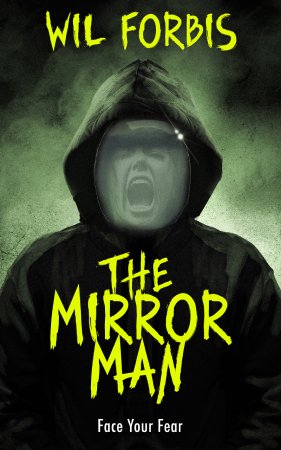Complaining about readers is not a wise pursuit for a humble author who desires an audience, and I acknowledge that one could read the following as doing exactly that. In my defense, I’m not so much complaining as observing a trend. What trend? That of readers celebrating protagonists who are morally pure, and condemning protagonists with any moral ambiguity.
(Where do I see this trend? Do I have any examples? Well, um, I see it a lot in Goodreads’ reviews, but, no, haven’t copied any down. You know them when you see them.)
Now, on one hand, I understand readers’ pursuit of this heroic archetype. Spending time with a novel’s main character is getting into a relationship with a person (albeit a fictional one), often with an intensity that surpasses one’s relationships with family or even close friends. (With a book person, you literally hear the thoughts in their heads.) As such, a reader might say, “why waste my time getting intimate with a scumbag?” Additionally, there’s a certain comfort that comes with being with a character who seems noble, caring, etc. We want to believe such people exist and will take what we can get.
But there’s the Superman problem. The famed blue and red clad superhero is the ultimate ideal protagonist. He’s friendly, honest, and uses his vast powers to thwart evildoers and defend the weak. He’s a champion of the little guy.
But also so fucking boring.
Now, I realize that’s just my opinion. I recently saw a reddit post where Superman-fans were bleating like sheep about how much they love the guy. And I note he’s had a comic book running for like, what…? Almost a century at this point. Plus a ton of movies/TV shows etc. Clearly, the character is beloved.
Nonetheless, I think the most ardent fan would admit Superman’s moral perfection denies him a certain gravitas, as well as an unpredictability. In any situation, Superman will always do “the right thing (TM)”.For a writer handling such a character, the storytelling options become limited; the hero’s moral perfection confines the narrative to a predefined set of choices, reducing the potential for unexpected or unconventional plot developments. And readers know this; they know the story can only go in a few directions, because it will never stray from Superman being an all around good guy. (Unless he’s actually a robot, or Lex Luthor has brainwashed him, or any of the other cliches.)
This moral perfection was not true of the character Spider-Man when he was developed in the early 60s, (or of many of the Marvel Comics characters of that era.) I recall one storyline where Spider-Man robbed a bank (though I think it was because he needed money to pay for Aunt’s May’s medical expenses.) Would straight-laced Superman ever rob a bank? I think not.
Peter Parker (the man behind Spider-Man’s mask) was a more interesting character because he so often struggled with the temptations of relaxing his morals. The story options were broader, the possibility of Spider-Man’s transgressions wider. And this made for interesting reading.
(As a related note, consider that Spider-Man’s origin came about because he did not try to stop the escape of the criminal who would later murder his beloved uncle Ben. An overwhelming sense of guilt was the character’s driving emotion.)
The characters engage in two forms of narrative I often think about and contrast. Superman’s stories are proscriptive—they desribe the world as it ought to be. The writers are saying, “Look kids, here’s how you should behave in these situations.” Spider-Man’s stories are more descriptive—they describe the world as it is (umm, ignoring the fact that a man is climbing walls and shooting webs, etc.) . Spider-Man’s writers acknowledged people have moral failings, they often need to seek redemption, and they won’t do “the right thing (TM)” every time.
(I should be clear that Spider-Man isn’t some deranged maniac: he does the right thing eventually. In the 1970s, Marvel would introduce characters like Wolverine and the Punisher who really strayed from proscriptive moralizing by killing their foes.)
The problem, at least from my view, is that proscriptive stories are boring—they’re a bit like the “And that’s one to grow on” moral fables that littered NBC’s Saturday morning television in the 1980s. Descriptive stories have broader narrative possibilities and just feel more true to me.
Of course, it all comes down to personal preference and a reader’s personality. There may be a kind of safety to be found in morally pure characters, a predictability that assuages a readers’s unease about the capriciousness of life. On the flip side, more adventurous readers may engage in novelty seeking, looking for characters who break the Superman mold.


